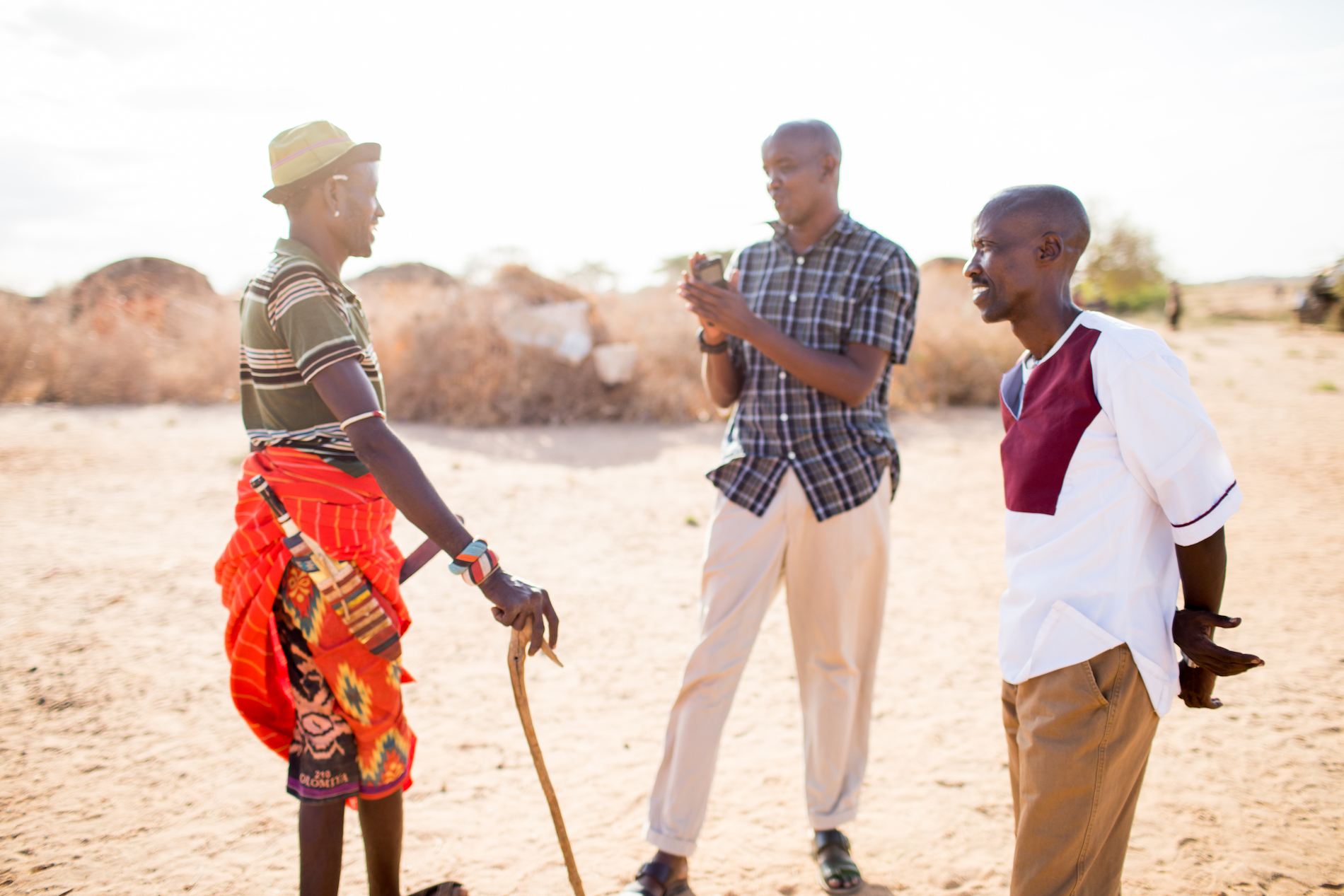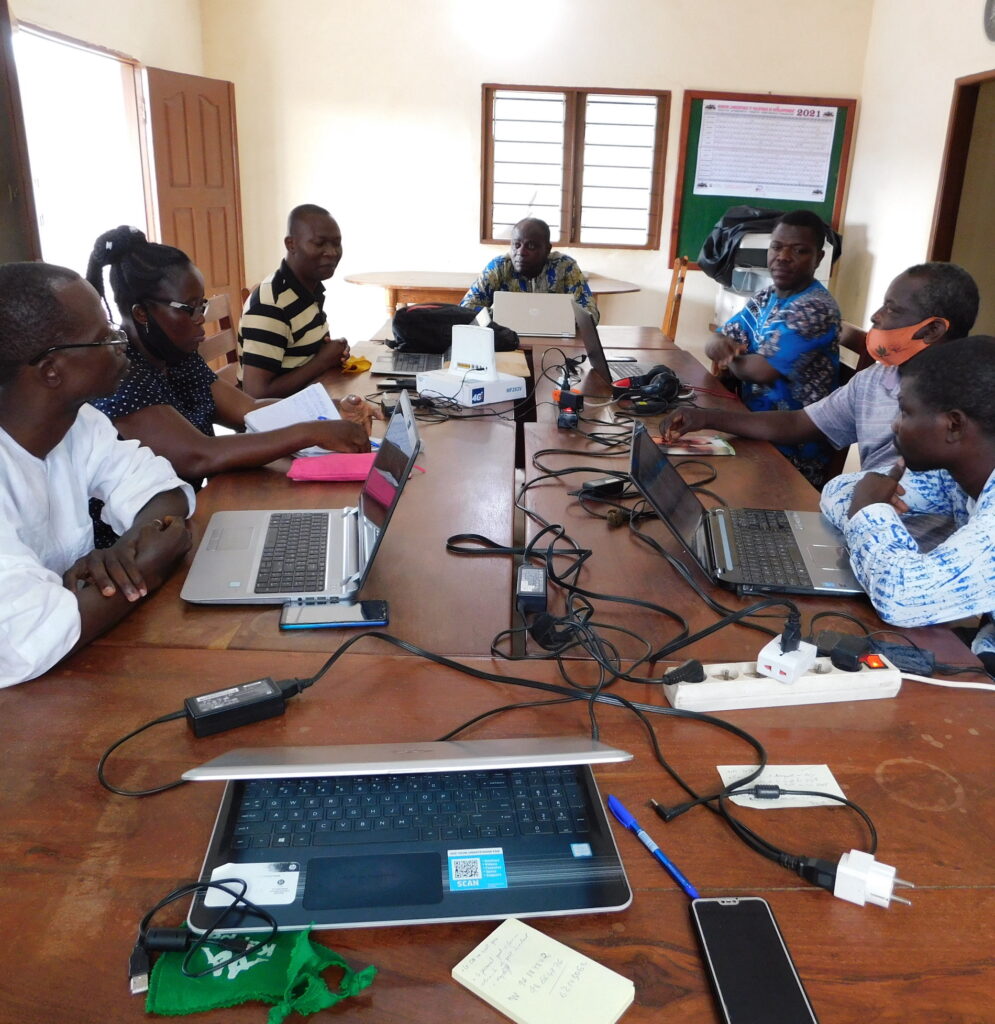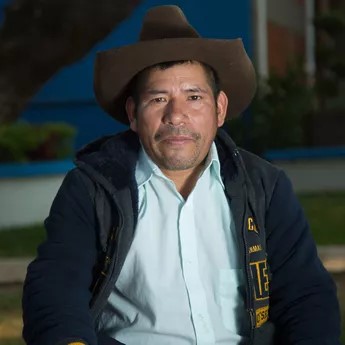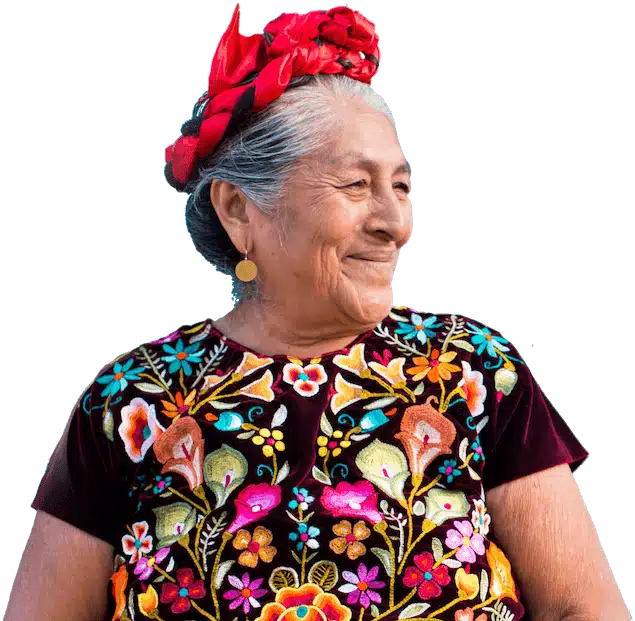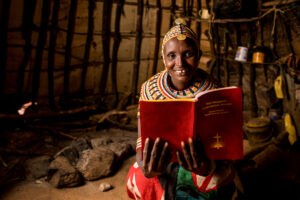During our daily morning staff prayer, Seed Company has focused on many African American heroes of the faith. In the process, we’ve studied God’s heart for people of all ethnicities and honored our African American brothers and sisters who’ve followed Christ at great personal cost, much like biblical characters we love, and even our Bible translators today.
But what do pioneer missionary George Liele, civil rights forerunner Joseph DeLaine, and the prophet Moses have to do with getting God’s Word to the nations?
Read on to find out.
Like George Liele, Bible Translators Forge New Paths
In the North American missions movement, before Adoniram Judson and William Carey, there was George Liele.
While a slave, Liele received Christ and began ministering to other slaves. When he was set free to follow the call of God upon his life, Liele used that freedom to plant Black churches in the United States and finally travel to Jamaica in 1782. There, he started a church that led thousands of people to Christ.
Liele could have done anything with his freedom. But he chose to use it to set others free for all eternity. And though few are familiar with his name, it rings throughout Heaven, making known this forerunner of the North American missions movement.
Today, sometimes the first known believers in a people group are Bible translators. They spend months or even years poring over the texts, risking persecution and ostracism, as the Holy Spirit works on their hearts. Then, their newfound faith emboldens them to bring God’s message of hope and redemption to their people–setting them free, once and for all, from spiritual bondage.
Like Joseph DeLaine, Bible Translators Lay Groundwork That Changes History
One of the early pioneers of the American civil rights movement was Rev. Joseph DeLaine. He, along with Thurgood Marshall, led the way in building a case against school segregation. This case, called Briggs v. Elliott, later merged with the landmark case known as Brown v. Board of Education.
But Joseph DeLaine paid a heavy price for using his voice. He lost his job, his home was set on fire, and he had to transfer to a church in another city. He made incredible sacrifices so later generations could enjoy the fruit. The case he built ultimately changed history and paved the way for children of all races to grow and learn together.
Many Bible translators make heroic sacrifices, yet they’ll never be famous.
Their homes are raided. They’re monitored by governments. They must flee their villages and go into hiding. But their sacrifices are paving the way for God’s Word to make history among their people.
Like Moses, Bible Translators Break Down Ethnic Barriers
Since creation, God has been making known his desire for the equality of all people. We are all made in his image! Genesis 5:1b–2 tells us, “When God created human beings, he made them to be like himself. He created them male and female, and he blessed them and called them ‘human’” (NLT).
Discrimination on the basis of race or color was never part of God’s plan. But in our fallen state, and throughout our history, we’ve found ways to show favor to some and disregard others.
Moses may not be the first person who comes to mind when one thinks of racial justice heroes—but he set an example for all of Israel. In Exodus 12:38, we learn that “a mixed multitude” (ASV) left Egypt along with the Israelites. And Scriptures such as Numbers 9:14, Numbers 15:14–16, and Deuteronomy 24:17 indicate that foreigners who had chosen to follow Yahweh were to be treated the same as the Israelites, with no discrimination. Nonetheless, “Miriam and Aaron criticized Moses because he had married a Cushite woman” (Numbers 12:1 NLT). (Cushites hailed from modern-day Ethiopia.)
Moses, a man who spoke with God face-to-face, chose to marry a Cushite. Yet Aaron and Miriam—prominent religious leaders—were unwilling to accept this person of a different race. Sadly, they used their voices to tear down unity rather than building it up. And hundreds of years later, Paul still had to remind Christ followers in Rome and Galatia not to show favoritism (Romans 3:22 and Galatians 3:28).
From Moses to the Modern-Day Bible Translation Movement
Today, we watch ethnic barriers crumble every day as God’s Word permeates cultures. In the Democratic Republic of Congo, the indigenous Iyeki people had clashed with Bantu people for years over land. During one particularly severe conflict, many Iyeki people died. Several of their villages were burned to the ground, causing them to flee into the forest.
But when the Iyeki learned the oral Bible story of Cain and Abel, they shed tears and decided to forgive their Bantu neighbors. They spread the message of reconciliation and forgiveness throughout the Iyeki community.
Even though the Bantu had all the social and economic advantages, they were moved to welcome the Iyeki call for reconciliation. And the Iyeki, who were powerless and trapped by worldly standards, found glorious freedom in forgiving their persecutors. Since then, the Bantu have been learning to tell Bible stories in their language, and the Iyeki have planted two new churches!
God’s Word Sets Captives Free
Time and time again, God breaks down barriers all over the world through his Word. He empowers the marginalized and gives a voice to the voiceless. He transforms not only individual lives, but whole communities and, indeed, entire cultures. Like George Liele, Joseph DeLaine, and Moses, God-fearing translators often pave the way for repentance, reconciliation, and transformation in their communities.
Today, we celebrate heroes like George Liele, who used their freedom to preach the gospel.
We honor civil rights pioneers like Rev. Joseph DeLaine, those who suffered retaliation for using their God-given voices so future generations wouldn’t have to.
We are sobered by the reminder of Aaron and Miriam rebelling against Moses. Any of us—even leaders in the church—are vulnerable to racial bias and prejudice, and we must repent of it.
We hold space for the stories of terrible pain and loss that persecuted translators and people groups like the Iyeki have experienced. And we rejoice over the reconciliation, forgiveness, and transformation that God’s Word is bringing to communities all over the world.
Let’s pause to invite the Holy Spirit into this space, allowing him to speak into our present need as he shapes us for a future of greater unity in him.
A Closing Prayer
Lord, where we have perpetuated systems of injustice, or where we have harbored prejudice in our hearts, forgive us.
Where we have held others back instead of building them up, bring us to repentance.
Right now, we invite you to reveal any hidden blind spots or biases. Bring them into the light so you can set us free.
Thank you that your Word reveals your heart for all people.
Thank you for grafting us in, just like the “mixed multitude” that left Egypt.
Today, we honor our African American brothers and sisters from long ago, people like George Liele, who used their lives—both in slavery and freedom—to serve you.
We honor the sacrifice of civil rights pioneers like our brother Joseph DeLaine, who was compelled by his faith to fight for the equality of African American boys and girls.
We honor the everyday sacrifices of Bible translators, who devote their lives to your Word that brings racial reconciliation and spiritual freedom in communities all over the world.
May I hide your Word in my heart, that I might not sin against you by devaluing any of my brothers and sisters.
Help me be a vessel of your peace, reconciliation, and justice, today and every day.
Amen.
